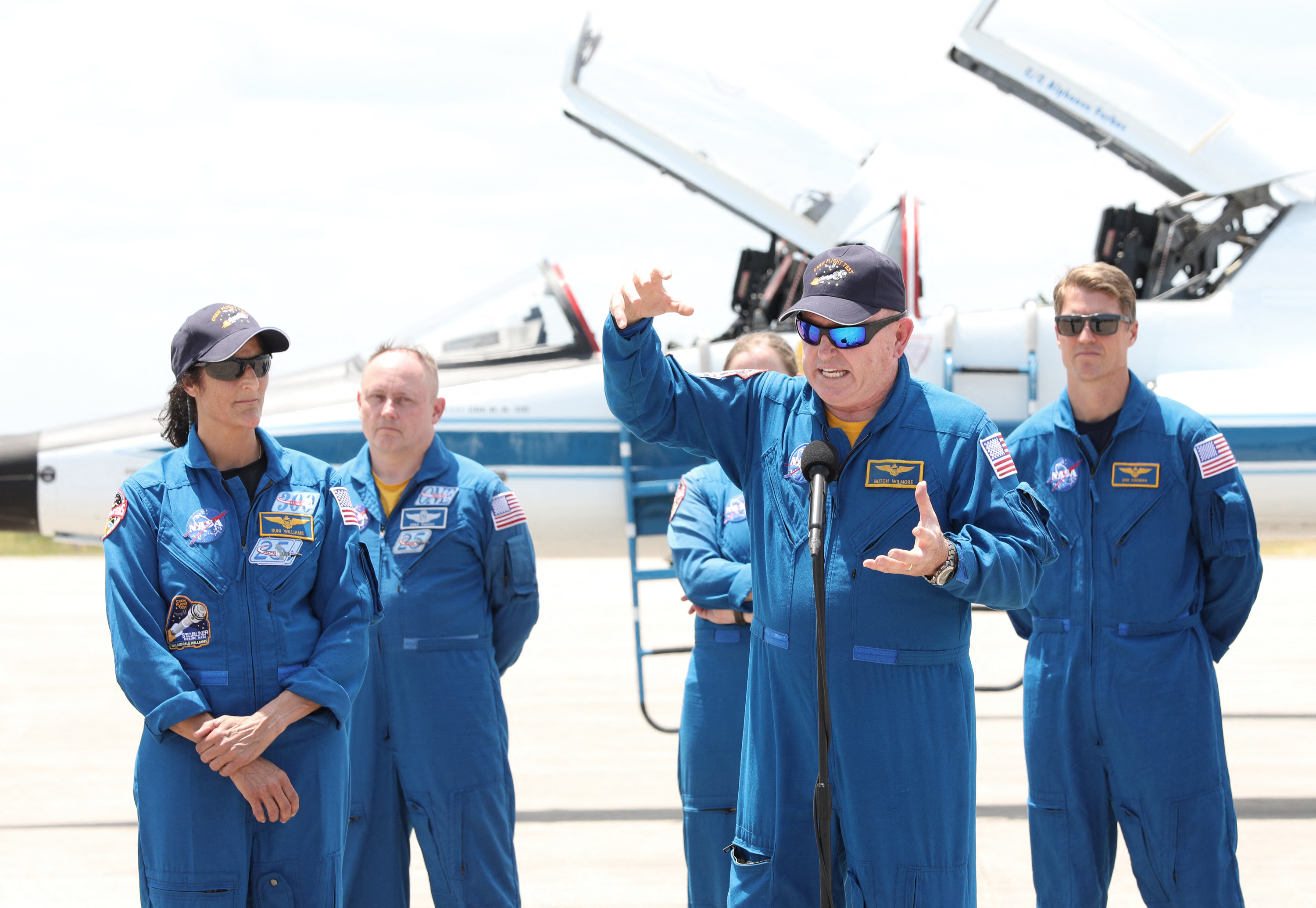A delegation of former senior U.S. officials met with Taiwan's leaders on Monday after President Joe Biden dispatched the group in a show of support following the island's successful democratic elections over the weekend.
Former Bush administration national security adviser Stephen Hadley and Obama administration U.S. Deputy of Secretary of State James Steinberg were accompanied by Laura Rosenberger, chair of the American Institute in Taiwan, the de facto U.S. embassy in Taipei.
They met Taiwan's President Tsai Ing-wen and Vice President Lai Ching-te, who on Saturday won a three-way presidential race with 40 percent of the vote, handing the ruling Democratic Progressive Party (DPP) a historic third term.

Taiwanese voters all but ignored a Chinese ultimatum that had described the election as a choice between peace or war. Beijing's preference was anyone but Lai, who it had dubbed a "destroyer of peace."
The election is unlikely to reduce simmering tensions across the Taiwan Strait, with the Chinese leadership having frozen out the anti-unification DPP administration since 2016 over the latter's outright rejection of China's territorial claim to the island.
"Your visit is of great significance, not only because it fully shows the U.S.'s support for Taiwan's democracy but also because it highlights the close and solid Taiwan-U.S. partnership," Tsai told the delegation, according to a readout from the Presidential Office in Taipei.
Tsai's second four-year term ends with Lai's inauguration this coming May.
"Taiwan's democracy has set a shining example for the world," Hadley said, calling Washington's relationship with Taipei "rock solid."
"It's an honor to return to Taiwan with two distinguished former senior U.S. officials to convey congratulations from the American people to Taiwan on its successful election," support for Taiwan's continued prosperity, and growth and our longstanding interest in cross-strait peace & stability," Rosenberger said in an X post on Sunday.
The United States has used high-level but unofficial delegations to signal continued support for Taiwan following elections in the past.
In 2016, Washington dispatched former Deputy Secretary of State Bill Burns—now the director of the CIA—to meet with President Tsai Ing-wen. Secretary of State Antony Blinken, who then No. 2 at the State Department, simultaneously visited Beijing in a move to ease tensions.
China claims Taiwan as part of its territory. Beijing says unification with the self-ruled island is inevitable and will be achieved through force if necessary. It did not immediately criticize the delegation's visit to Taipei.
The Chinese Foreign Ministry didn't immediately respond to Newsweek's written request for comment.

Soon after Saturday's presidential and legislative polls on the island, the State Department congratulated Lai and Taiwan's people for "again demonstrating the strength of their robust democratic system and electoral process."
Washington was ready to work Lai "and Taiwan's leaders of all parties to advance our shared interests and values, and to further our longstanding unofficial relationship," its statement said.
The U.S. position drew a sharp rebuke from Beijing, which called it a violation of its "one China" principle, under which—differing from the U.S.'s one China policy—Taiwan is unequivocally part of China.
"The Taiwan question is at the very core of China's core interests and the first red line that must not be crossed in China-U.S. relations," the Chinese Foreign Ministry said. "China firmly opposes the U.S. having any form of official interaction with Taiwan and interfering in Taiwan affairs in any way or under any pretext."
The U.S. has not officially recognized Taiwan since 1979, when it switched allegiances to Beijing during the administration of former President Jimmy Carter. Washington's intentionally ambiguous one-China policy acknowledges, but does not recognize, Beijing's claim of sovereignty over Taiwan.
The U.S. maintains a strong, unofficial diplomatic presence in Taiwan and is its main arms supplier.
Uncommon Knowledge
Newsweek is committed to challenging conventional wisdom and finding connections in the search for common ground.
Newsweek is committed to challenging conventional wisdom and finding connections in the search for common ground.
About the writer
Micah McCartney is a reporter for Newsweek based in Taipei, Taiwan. He covers U.S.-China relations, East Asian and Southeast Asian ... Read more
To read how Newsweek uses AI as a newsroom tool, Click here.





